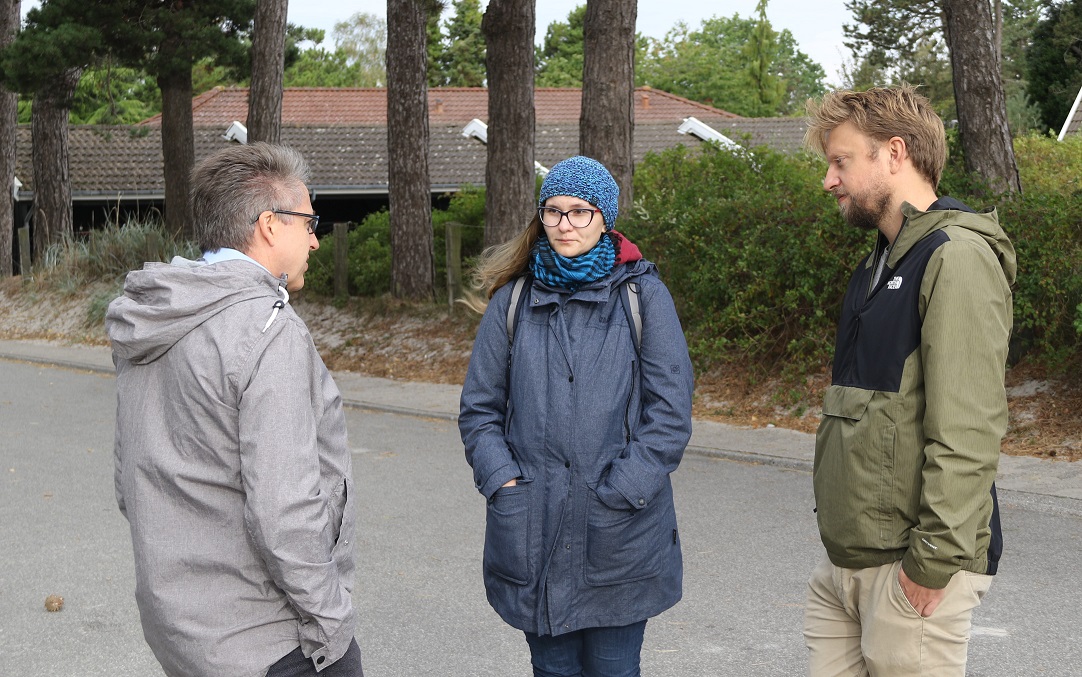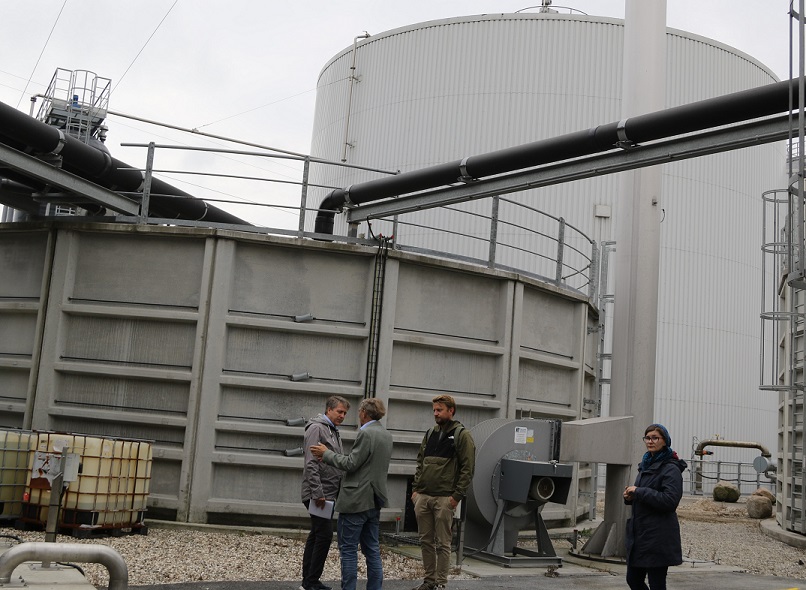On the 15th of September representatives from Baltic Energy Innovation Centre (BEIC), Gdansk University of Technology (GUT) and Roskilde University (RUC) visited Solrød Biogas plant.
The visit started at the Solrød beach where Preben Larsen, board member of the Solrød beach cleaning team, was interviewed.

From left: Jörgen Held, BEIC, Karolina Kądziela, GUT and Mikkel Busck, project manager Solrød Biogas, at the Solrød beach waiting for Preben Larsen, Solrød beach cleaning team and Tyge Kjaer, RUC to show up.
Photo: Fredrik Rosengren
Then the visit continued at the Solrød Biogas plant, which is located approx. 4 km from the beach. Erik Lundsgaard from Bigadan, who is responsible for the operation of the Solrød Biogas plant, gave input to the COASTAL Biogas case study related to Solrød Biogas, and Mikkel Busck and Tyge Kjaer showed the facility.

Study tour at Solrød Biogas plant, currently the only facility in the Baltic Sea region which co-digests cast seaweed at industrial scale.
Photo: Fredrik Rosengren
The COASTAL Biogas team appreciates the nice and interesting study tour which was perfectly hosted by Mikkel Busck and supported by Tyge Kjaer.

